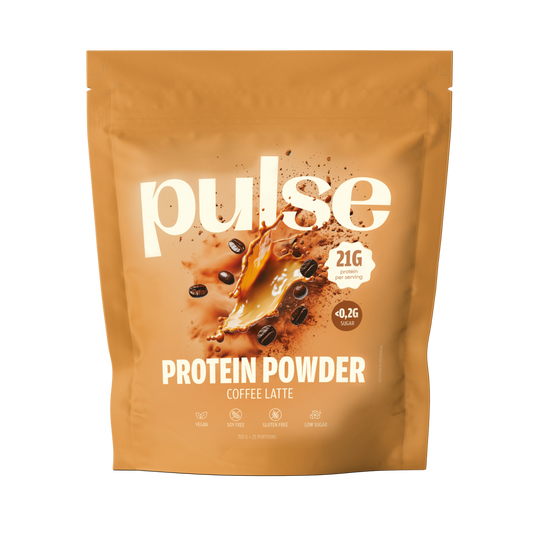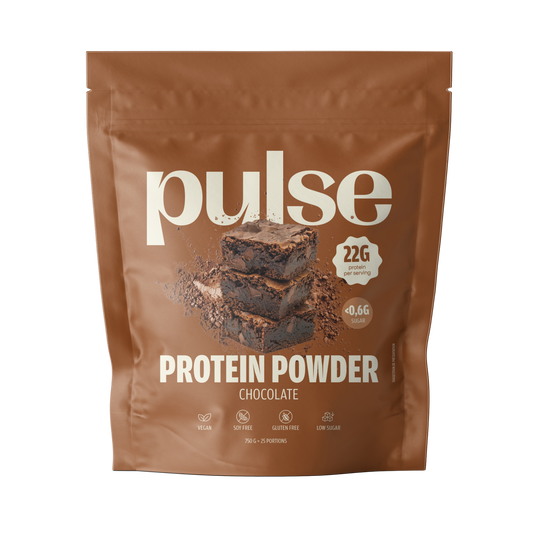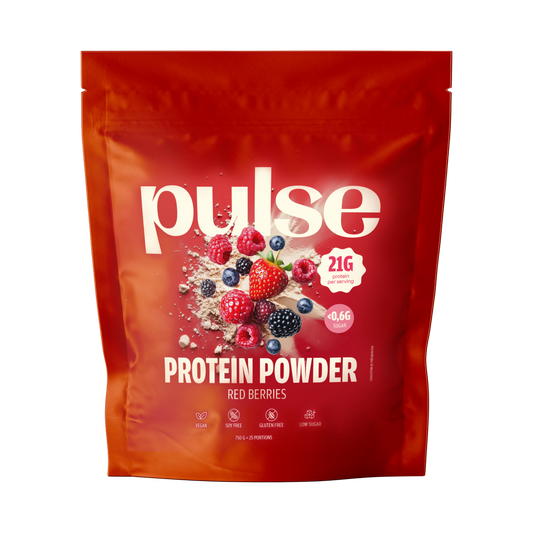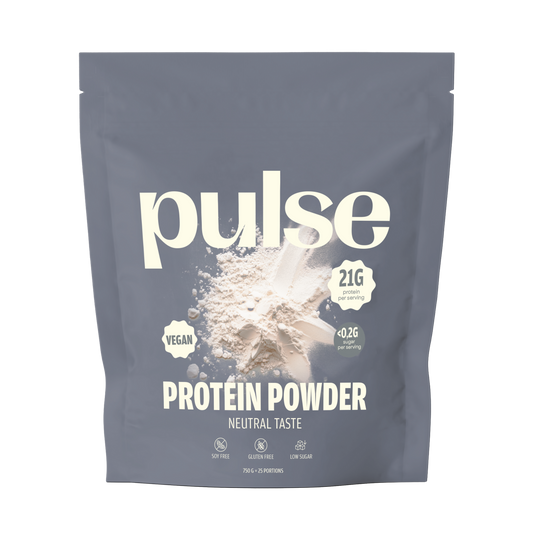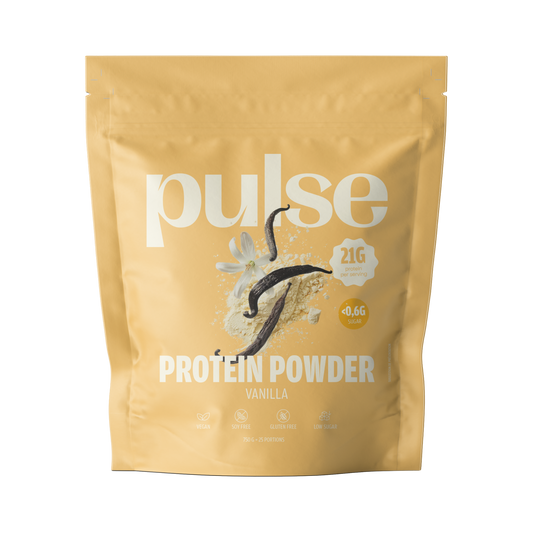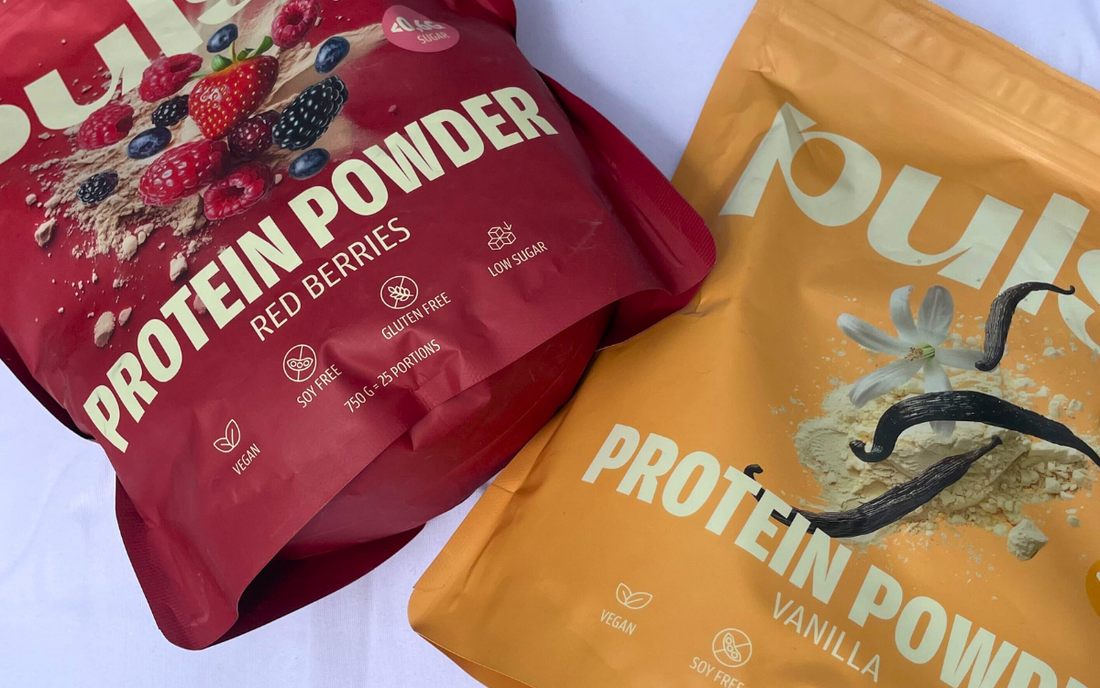
Plant Protein vs. Whey: which one to choose?
For a long time, whey protein was the gold standard for protein supplements. But today, plant-based proteins are gaining ground—and not just among vegans. At Pulse , we believe in a protein that's cleaner, more digestible, and just as effective. Whether you're athletic, active, or simply looking for more balanced nutrition, it's time to compare the two options.
Whey: the best-known protein
Whey protein is derived from milk, recovered during the cheesemaking process. It is naturally rich in essential amino acids, particularly leucine, a key amino acid for muscle building.
Its advantages:
- Very good digestibility (especially in isolated form)
- Fast absorption, ideal right after training
- Rich in BCAAs, especially leucine
- Generally mild taste and creamy texture
Its limits:
- Contains lactose → may cause bloating or digestive discomfort
- Not suitable for lactose intolerant, strict vegetarians or vegans
- Often ultra-processed, with artificial sweeteners or flavors
- High environmental impact (livestock, water, CO₂ emissions)
Whey protein remains a good option for those who digest it well. But it's no longer the only one.
Plant protein: clean, complete, and effective
At Pulse, we use intelligent blends of peas, rice, pumpkin seeds, and beans to create complete plant-based proteins. Contrary to popular belief, our formulas cover all 9 essential amino acids , including leucine, in sufficient amounts to support muscle recovery.
The advantages of our Pulse protein powders:
- 100% plant-based, lactose-free and free from common allergens
- More digestible, without bloating effect
- Complete amino acid profile thanks to plant synergies
- Low in calories, no added sugars
- Naturally contain fiber, vitamins and minerals
- No artificial sweeteners, no unnecessary additives
- Better ecological impact: less water, fewer emissions
Plant proteins have evolved considerably. Formulations like those from Pulse now offer the same effectiveness as whey , with a nutritional profile that is often richer and more respectful of the body.
And what about performance?
The studies are clear: a well-formulated plant-based protein is just as effective as whey for maintaining or developing muscle mass, provided it provides a good amino acid profile—particularly leucine—and a sufficient dose (20–30g).
With Pulse, we tick all the boxes! Ultimately, we're not saying whey is useless. We're saying it's no longer essential.
With Pulse, you have a plant-based alternative:
- Complete
- Digest
- Natural
- Ecological
Whether you're athletic, active, or simply mindful of what you eat, our plant-based proteins are designed to provide you with what your body needs, without compromise.

